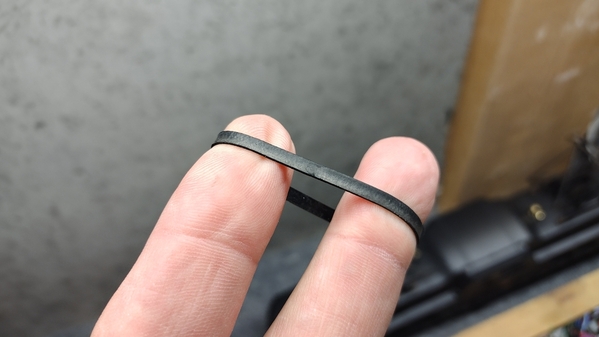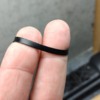My son's MTH P5A PS2 20-5582-1 starts stuttering. One motor is running faster than the other. That engine runs on track Power and the problem exists using DCS with Z4000 on the layout and conventional with a Z1000 on the workbench.
We checked the gears, no blockage. Gease is good and he oiled the axles.
We put the logo on it's side and make chalk marks on the wheels. My son counted one and I counted the other for 60 seconds. The "good" motor (the one with the tac tape and reader) had 54 revolutions in a minute while the problem motor (black flywheel) only had 36 revolutions.
Of course on its side with no resistance, they both just run but one faster than the other. But when on the track the one motor spinning faster wants to drag the engine around this causing the stuttering.
What would cause one motor to spin slower?
Thanks.
Ron







